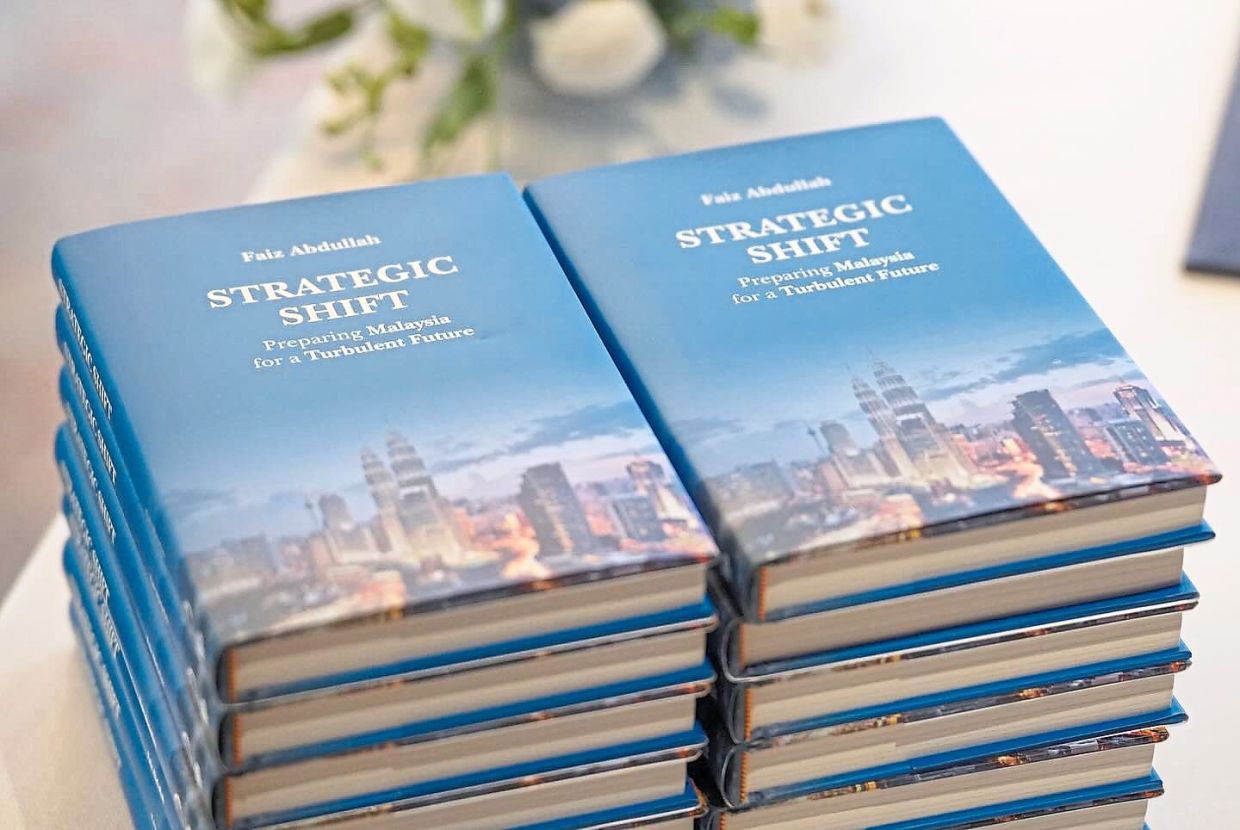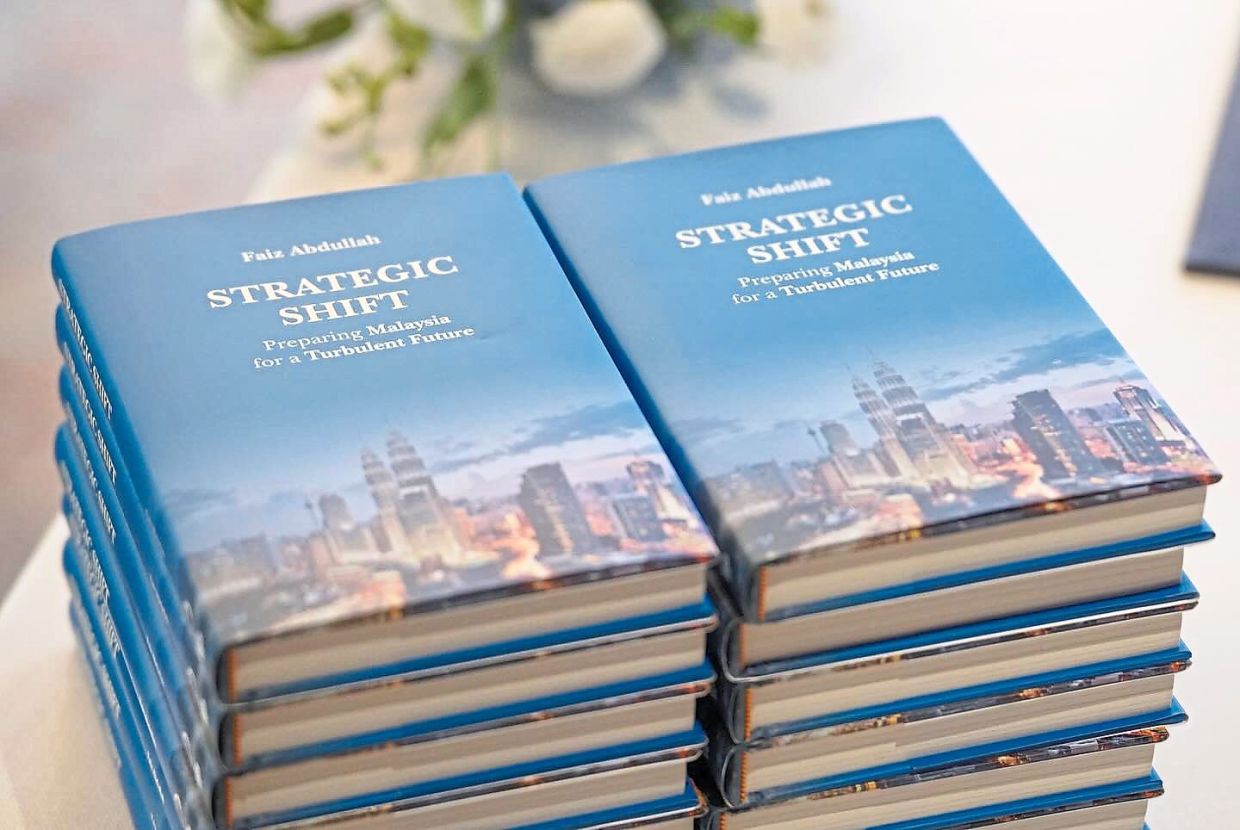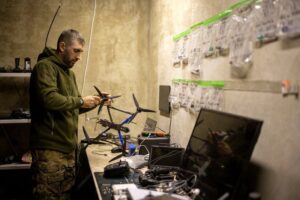THESE are turbulent times we are living in. A post-pandemic world beset by conflicts, economic upheavals, and shifting relations among major global powers. And Malaysia is sitting right in the middle of the chaos.
For the country to ride out the turbulence, it is imperative that we boldly adapt to the changing world without losing our moral compass.
Or as Prof Datuk Dr Mohd Faiz Abdullah puts it in his new book, Strategic Shift: Preparing Malaysia for a Turbulent Future, “post-normal times … require new approaches to navigate an increasingly uncertain world”.
The chairman of the Institute of Strategic and International Studies (Isis) Malaysia says the world we live in today can no longer be understood through old frameworks or familiar playbooks.
“Post-normal times, by definition, cannot be circumscribed by what we ascribe to be the current situation,” Faiz says, calling current times a complex situation compounded by non-linear and fast-paced changes in the world.
“You can’t really confine it within a particular paradigm,” he adds.
What used to be separate issues are now deeply entangled, as Faiz points out that the fourth industrial revolution has spilled over onto geopolitics and geo- economics.
“The blocks that we are familiar with – the technological, security, trade blocks – they are now overlapping.
“This overlapping leads to a problem if we try to pigeonhole things like ‘this is a geopolitical problem, or this is a trade problem’.
“This is where the problem is, not just being able to adapt but to also be strategically proactive, which means that we don’t only react. We anticipate, and we press into action the things that we ought to do,” he says.
Yet even as Malaysia learns to adapt to this age of turbulence, Faiz says flexibility must not come at the expense of our convictions.
The moral pillars of our country is one of Malaysia’s strength as a “middle power”, he notes.
Prime Minister Datuk Seri Anwar Ibrahim’s foreign policies are based on the doctrine of pragmatism, says Faiz, describing them as a delicate balance between idealism and realism.
“Pragmatism, not for your own glory, but for the sake of the nation.
“So if it means having to meet unfavourable people, we have to meet them.
“If it means having to say things which others are not prepared to or do not have the moral fibre to say, he will say it.
“He will be able to meet any leader who is prepared to meet him and articulate the basic principles.
“Like I’ve said before, he will not resile in any way, to any degree, when it comes to the question of justice.”
As a middle power dealing with superpower countries, Malaysia also has to do a delicate balancing act between strategic diplomacy and not putting all its eggs in one basket.
Part of maintaining that balance requires Malaysia to continue engaging with major powers, including the United States, while staying true to its independent voice.
“We have to balance between the need to enforce our strategic diplomacy and the need to ensure that we are not wholly dependent on any party,” he says.
The days of complete neutrality are gone, and must be replaced by non-alignment, Faiz adds.
“By that, I mean strategic non-alignment, which is to ensure that we do not get glued to any superpower.
“We must continue to reach out to near powers like, for example, in the case of Asean dialogue partners, I think we should be reaching out to New Zealand, Australia, and also Japan, South Korea,” he says.
Asean centrality is crucial for this region to survive the turbulent times, but the problem with this is that it currently appears to just be a mantra cited at the right times to sound good, says Faiz.
Without cohesiveness in action and articulation among member nations, there can be no Asean centrality.
For Faiz, Malaysia under the current leadership is in a prime position to be a soft power that acts as a bridge among nations, rather than a battleground.
“I think the prime minister is a diplomat par excellence. I’m telling you at the risk of sounding rather crude – but after meeting with him for five minutes, they could be eating from his hand.
“I’m serious here. And that is one of the qualities of soft power.
“We have soft power in our leadership.”
And in a world growing ever more turbulent by the day, this soft power and the art of balance may well define Malaysia’s place and purpose on the world stage in the years to come.







